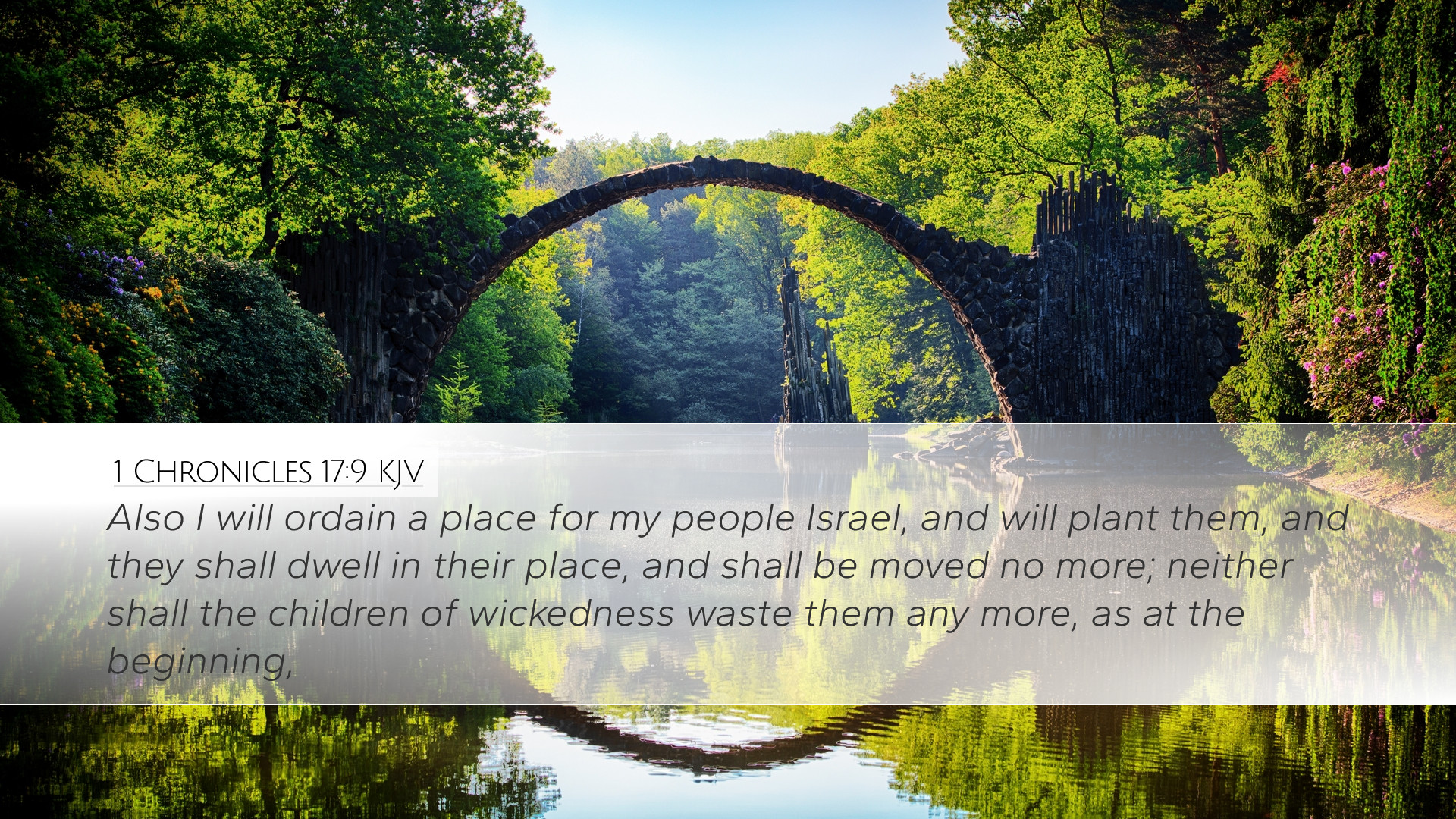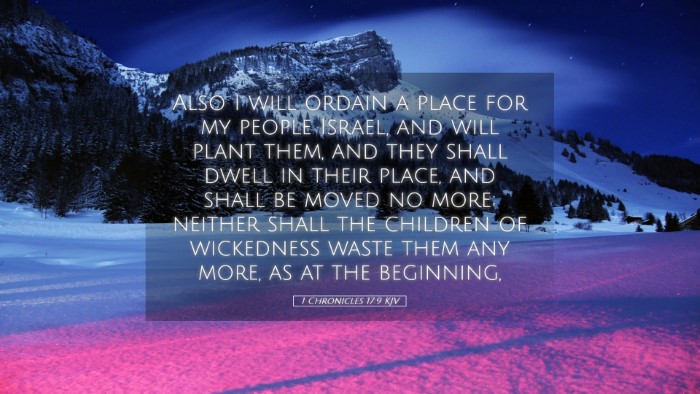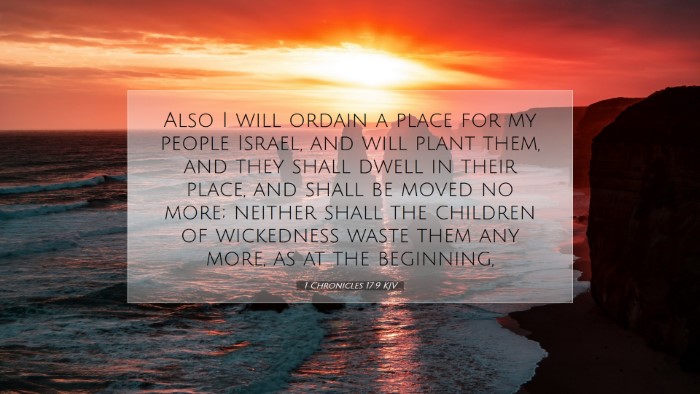Commentary on 1 Chronicles 17:9
Verse Citation: 1 Chronicles 17:9 - "And I have appointed a place for my people Israel, and will plant them, that they may dwell in their place, and be moved no more; neither shall the children of wickedness waste them any more, as at the beginning."
Introduction
This verse is a pivotal moment in the narrative regarding God's promises to Israel, specifically concerning their future stability and security as a nation. In this commentary, we will synthesize insights from esteemed public domain commentaries, including those by Matthew Henry, Albert Barnes, and Adam Clarke, to elucidate the deep theological implications of this passage.
The Context of the Promise
The context surrounding 1 Chronicles 17 attributes significance to David's desire to build a temple for God. This desire leads to divine revelations regarding God's enduring commitment to David and the people of Israel. God’s promise in 1 Chronicles 17:9 serves as a reaffirmation of His faithfulness despite Israel's tumultuous history.
God's Plan for Israel
Stability and Permanence: The phrase "I have appointed a place" indicates God's intention to provide a stable dwelling for His people. Matthew Henry elaborates on this by emphasizing that God’s choice of Jerusalem is not merely accidental but deliberate, symbolizing the stability of His covenant.
This promise contains an eschatological dimension, suggesting not only immediate peace but also pointing to future fulfillment where Israel will have a permanent place in God's redemptive plan.
Divine Sovereignty and Protection
Security Against Adversaries: The latter part of the verse highlights God’s protection, stating, "neither shall the children of wickedness waste them any more." Adam Clarke notes that this statement serves as a reassurance that God's might will thwart the evil attempts of oppressors, reflecting His sovereignty over both Israel and their enemies.
The historical context reflects the times when Israel faced numerous threats, both internal and external. The comfort derived from this promise emphasizes divine intervention that protects and sustains the people against overarching malevolence.
Theological Implications
Covenantal Theology: This passage is rich in covenantal themes, suggesting an eternal commitment from God to His people. Albert Barnes elaborates on the notion that God's covenant with David underpins the legitimacy of Israel's kingship, implying that divine authority is the ultimate source of governance.
Furthermore, the assurance that Israel “shall dwell in their place” reflects the archetypal fulfillment of peace and rest, akin to the Sabbath rest which denotes both physical and spiritual well-being. The metaphor of planting signifies deep-rootedness, suggesting not only survival but flourishing.
Application for Believers
Trust in Divine Providence: Pastors and theologians can draw parallels from this verse to encourage believers in their faith journey. The promise of God’s presence and protection can be a powerful reminder during life's trials. Christians today may find solace knowing that just as God promised stability to Israel, He likewise assures His followers of His abiding presence.
The Importance of a Place: The "place" appointed for Israel also symbolizes the spiritual inheritance that Christians claim through their faith in Christ. This indicates that believers have a promised rest and security in God’s kingdom, prompting reflection on one’s identity in Christ.
Conclusion
The promise encapsulated in 1 Chronicles 17:9 is not just a historical account but a profound theological declaration that resonates through centuries. Through insights gathered from public domain commentaries, the verse manifestly speaks to God’s unchanging nature, His faithfulness to His covenant, and the hope of eternal security found in Him. As believers reflect on this promise, may they be strengthened in their faith, knowing that God has appointed a place for all who trust in Him.


